
India’s diverse climate and topography allow for cultivating a wide variety of fruit plants. You can grow many different fruit plant species in India.
Here is an extensive list of fruit plants that are well-suited for cultivation in different regions of India:
List of Fruit Plants Suitable for Indian Climate
1. Mango (Mangifera Indica):
- Mango is the national fruit of India and is grown in tropical and subtropical regions.
- It is known for its sweet and juicy flesh and comes in various delicious varieties like Alphonso, Kesar, and Langra.
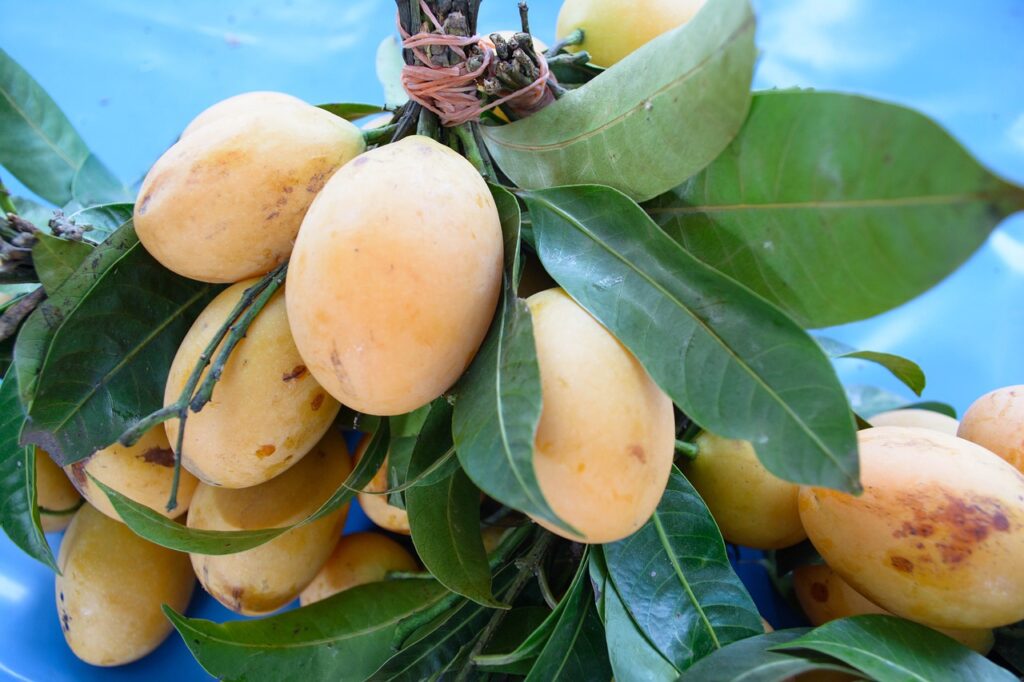
2. Banana (Musa species)
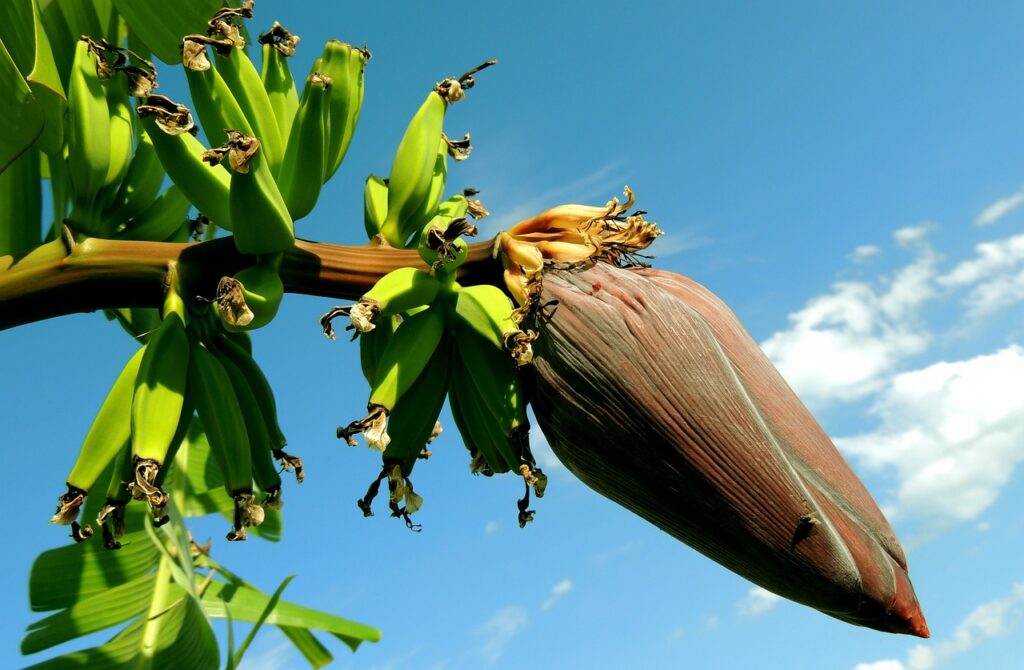
- Bananas are one of the most widely consumed fruits in India and grow in tropical and subtropical regions.
- They are rich in carbohydrates, potassium, and vitamins and come in different varieties.
3. Papaya (Carica Papaya)
- Papaya trees thrive in tropical climates with well-drained soil.
- Papayas are soft, orange-coloured fruits with a sweet and musky flavour and are rich in vitamins A and C.
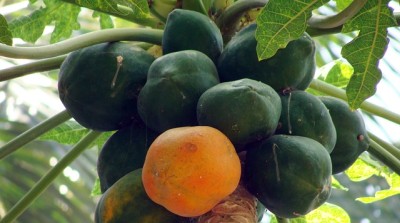
4. Guava (Psidium Guajava)
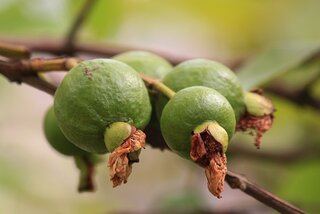
- Guava trees are hardy and adaptable, suitable for various climates.
- Guavas have a tropical flavour, and their flesh can be white, pink, or red.
5. Grapes (Vitis Vinifera)
- Grapes are grown in certain regions of India with a Mediterranean-like climate.
- They are used for table consumption, winemaking, and making raisins.

6. Apple (Malus Domestica)
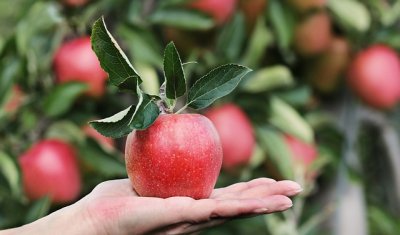
- Apples are mainly cultivated in hilly regions with a temperate climate.
- In India, apples are grown in certain hilly regions like Himachal Pradesh and Jammu & Kashmir.
- They come in various varieties and have a crisp, juicy texture.
7. Pomegranate (Punica Granatum)
- Pomegranates prefer semi-arid and subtropical climates.
- They have a unique sweet-tart taste and are known for their juicy arils packed with antioxidants.
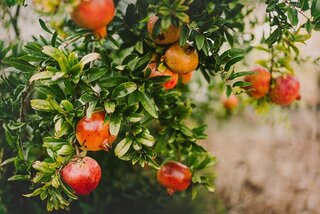
8. Orange (Citrus Sinensis)
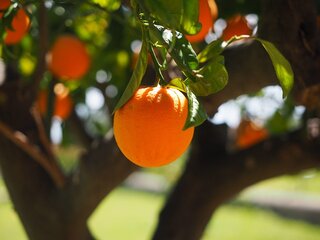
- Oranges are grown in various states in India, with Nagpur oranges being famous.
- They require a warm climate with well-defined seasons and are rich in vitamin C.
9. Lemon (Citrus Limon):
- Lemon trees are easy to grow and bear acidic, vitamin C-rich fruits.
- Lemons are commonly used for culinary purposes, in beverages, and for their medicinal properties.
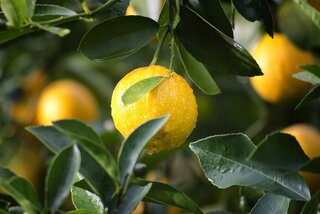
10. Lime (Citrus Aurantiifolia)
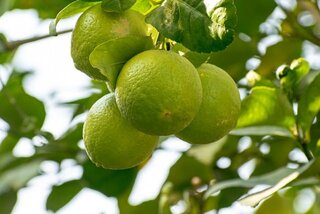
- Limes, similar to lemons, are cultivated for their acidic juice and are suitable for warm and tropical regions.
11. Pineapple(Ananas Comosus)
- Pineapples are grown in coastal areas with well-drained soils and tropical climates.
- They taste sweet and tangy and are commonly used in desserts and juices.
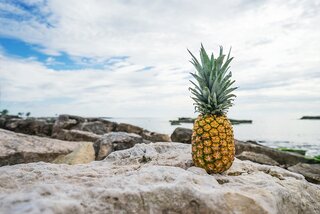
12. Chikoo/Sapota (Manilkara Zapota)
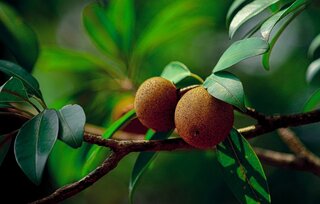
- Chikoo trees thrive in tropical regions and produce sweet, brownish fruits with a unique flavour and texture.
13. Cantaloupe/Musk Melon (Cucumis Melo)
- Musk melons prefer warm temperatures and produce sweet and aromatic fruits with a netted rind.
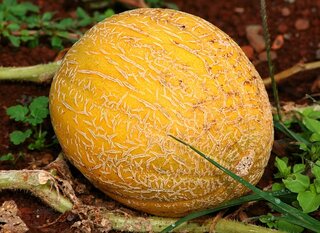
14. Watermelon (Citrulllanatustus)
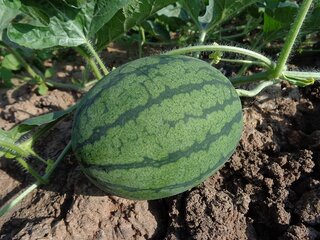
- Watermelons are heat-loving fruits grown in various regions of India.
- They have juicy, refreshing flesh and are perfect for hot summers.
15. Custard Apple (Annona Reticulata)
- Custard apples prefer warm and tropical climates and are often used in desserts and milkshakes.
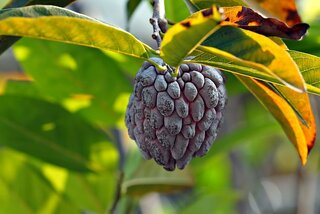
16. Jackfruit (Artocarpus Heterophyllus)
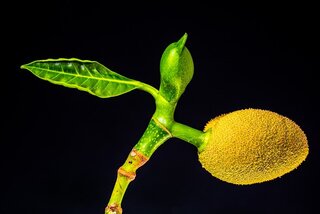
- Jackfruit trees grow in tropical regions and produce large, starchy fruits that are used both ripe and unripe.
17. Dragon Fruit (Hylocereus Species)
- Dragon fruit cacti are suitable for warm regions and produce striking, brightly coloured fruits with a mildly sweet taste.
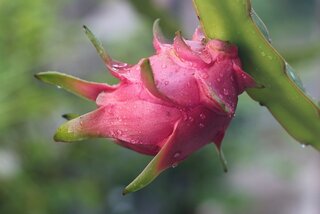
18. Lychee (Litchi Chinensis):
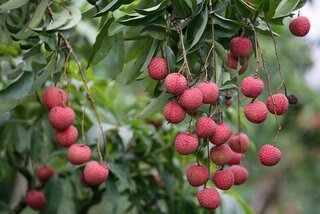
- Lychees grow well in subtropical regions with a distinct winter season.
- They have juicy, white, translucent flesh and are commonly consumed fresh.
19. Kiwi Fruit (Actinidia Deliciosa)
- Kiwi vines are grown in certain regions with a temperate climate.
- Kiwifruits are fuzzy, green fruits with a tangy and refreshing flavour.
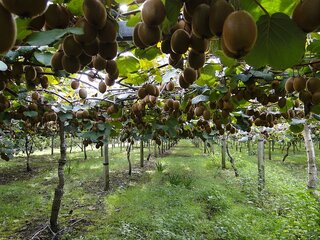
20. Amla/Indian Gooseberry (Phyllanthus Emblica)
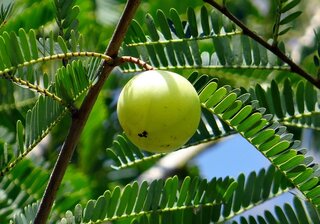
- Amla trees are hardy and grow in a wide range of climates.
- Amla fruits are rich in vitamin C and used in Ayurvedic medicine.
21. Ber/Indian Jujube (Ziziphumauritianana)
- Ber trees are hardy and drought-tolerant, thriving in hot and arid climates.
- Ber fruits are small, sweet, and nutritious, commonly consumed fresh or dried.
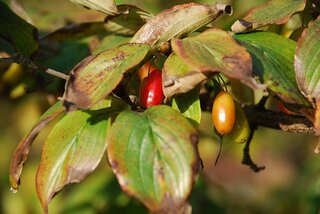
22. Fig (Ficus Carica)
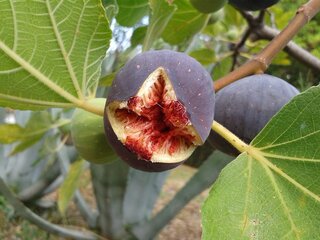
- Fig trees are deciduous and prefer a warm, dry climate with well-drained soil.
- Figs are pear-shaped fruits with sweet, chewy flesh and are rich in dietary fibre and various minerals.
23. Mulberry (Morus Species)
Mulberry trees are deciduous and grow in a variety of climates, from temperate to subtropical.
Mulberries are dark-coloured, sweet, and often used for fresh consumption or making jams and desserts.

24. Jamun/Indian Blackberry (Syzygiumcuminii)
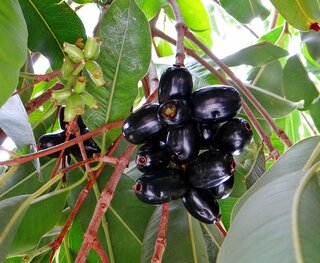
- Jamun trees are evergreen and grow well in tropical and subtropical climates.
- Jamun fruits are dark purple, have a unique tangy-sweet flavour, and are known for their medicinal properties.
25. Avocado (Persea Americana)
- Avocado trees thrive in a subtropical or tropical climate with well-drained soil.
- Avocado fruits are rich and creamy, packed with healthy monounsaturated fats and various nutrients.
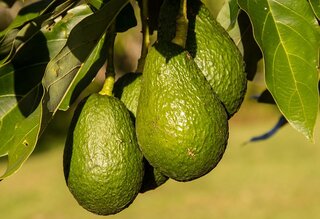
26. Indian Plum/Jambul (Spondias Dulcis)
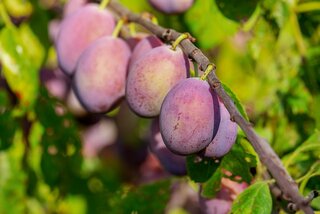
- Indian Plum trees prefer tropical and subtropical climates and are well-adapted to coastal regions.
- Indian Plums have a juicy and tangy taste, similar to a blend of mango and apple.
27. Apricot (Prunus Armeniaca)
- Apricot trees need a temperate climate with a distinct winter season for proper dormancy.
- Apricots have a sweet and slightly tart taste and are rich in vitamins A and C.
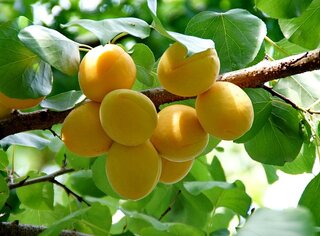
28. Olive (Olea Europaea)
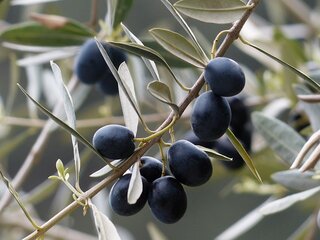
- Olive trees require a Mediterranean-like climate with mild winters and hot summers.
- Olives are small, bitter fruits that are commonly used for making olive oil.
29. Plum (Prunus Domestica)
- Plum trees thrive in temperate climates and well-drained soil.
- Plums come in various colours and have a sweet and slightly tart taste.

30. Peach (Prunus Persica)
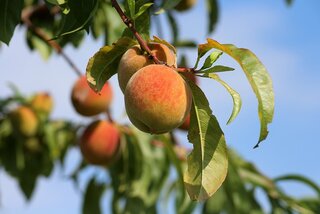
- Peach trees require a temperate climate and well-drained soil.
- Peaches are juicy and flavorful fruits with soft, fuzzy skin.
31. Pear (Pyrus Species)
- Pear trees are best suited for temperate climates with cold winters.
- Pears have juicy and sweet flesh and come in various shapes and colours.
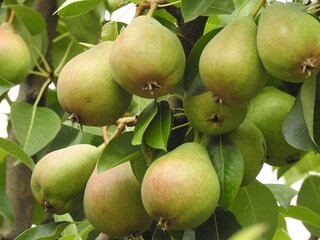
32. Custard apple/Sitaphal (Annona Squamosa)

- Custard apple trees prefer tropical and subtropical climates and can tolerate dry conditions.
- Custard apples have a sweet and creamy pulp, often eaten fresh or used in desserts.
33. Cashew (Anacardium Occidentale)
- Cashew trees thrive in tropical and subtropical climates with well-drained soil.
- Cashew nuts grow outside the fleshy cashew apple and are rich in healthy fats and minerals.
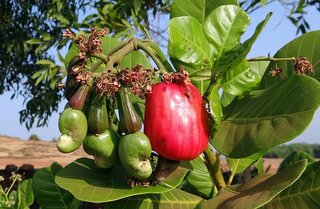
34. Coconut (Cocos Nucifera)
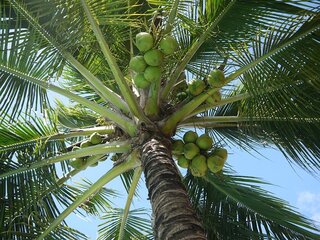
- Coconut palms grow in tropical coastal regions with well-drained sandy soil.
- Coconuts are used for their water, milk, oil, and flesh, providing a versatile food source.
35. Raspberry (Rubus Idaeus)
- Raspberry plants need a temperate climate with well-drained, acidic soil.
- Raspberries are red or black, juicy berries often used in desserts and jams.
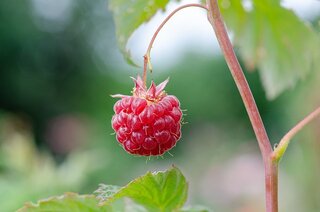
36. Blackberry (Rubus Fruticosus)
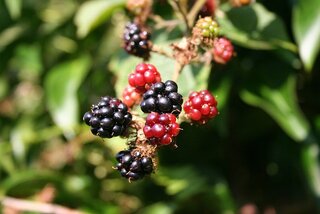
- Blackberry bushes grow well in temperate climates with moist, well-drained soil.
- Blackberries are dark, juicy berries enjoyed fresh or used in various culinary applications.
37. Gooseberry (Ribes Uva-Crispa)
- Gooseberry bushes prefer temperate climates with well-drained soil.
- Gooseberries are small, tart fruits commonly used in jams, pies, and desserts.
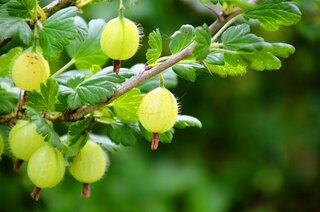
38. Passionfruit (Passiflora Edulis)
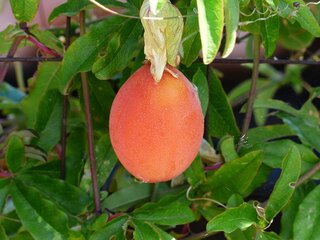
- Passionfruit vines thrive in warm and tropical climates.
- Passionfruits have a wrinkled, tough rind and a sweet, aromatic, and seedy pulp.
39. Starfruit/Carambola (Averrhoa Carambola)
- Starfruit trees grow well in tropical regions with well-drained soil.
- Starfruits have a unique star-shaped cross-section and a sweet and tangy taste.
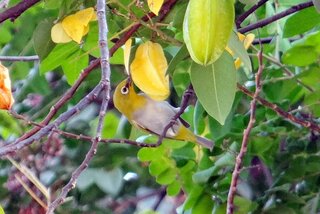
40. Persimmon (Diospyros Kaki)
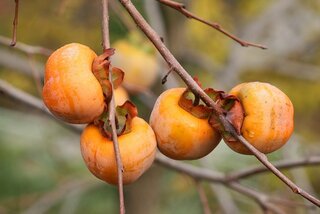
- Persimmon trees require a temperate climate with cold winters and well-drained soil.
- Persimmons are sweet and flavorful fruits, either astringent or non-astringent depending on the variety.
41. Indian Hog Plum (Spondias Pinnata)
- Indian hog plum trees thrive in tropical and subtropical climates.
- The hog plum fruits are sour and often used to make pickles and chutneys.
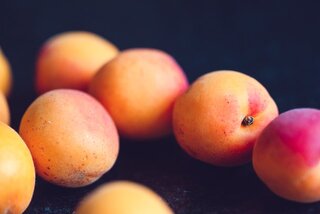
42. Indian Bayberry (Myrica Nagi)
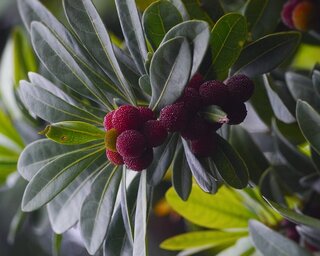
- Indian bayberry trees prefer temperate and subtropical regions.
- The bayberry fruits are small and are used in traditional medicine.
44. Indian Cherry (Muntingia Calabura)

- Indian cherry trees prefer warm and tropical climates.
- Indian cherries are small and red, with a sweet and mildly tart flavour.
45. Indian Blackberry (Rubusellipticuss)
- Indian blackberry bushes grow well in temperate regions.
- Indian blackberries are juicy and dark purple, used for fresh consumption and jams.
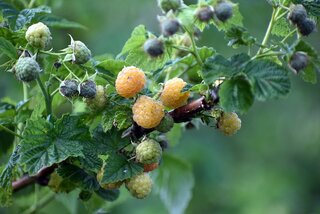
46. Indian Laurel (Litsea glutinosa)
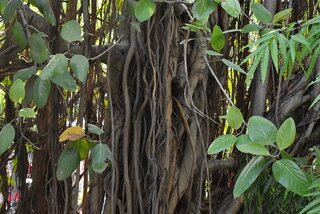
- Indian laurel trees prefer tropical and subtropical regions.
- The fruits of Indian laurels are small and have a spicy flavour used in cooking.
Conclusion
You can buy most of these fruit plants from Plants Nurseries all over India. Remember that the suitability of these fruit plants can vary based on the specific climatic conditions and soil types in different regions of India. It’s essential to conduct local research or consult with agricultural experts in your area before starting a fruit cultivation project.
Financial and Business expert having 30+ Years of vast experience in running successful businesses and managing finance.





